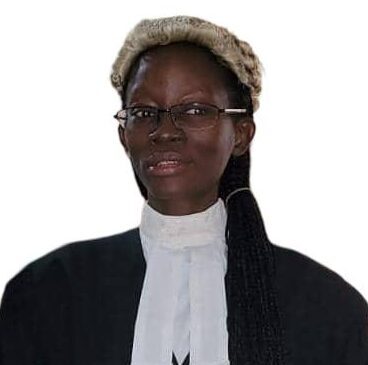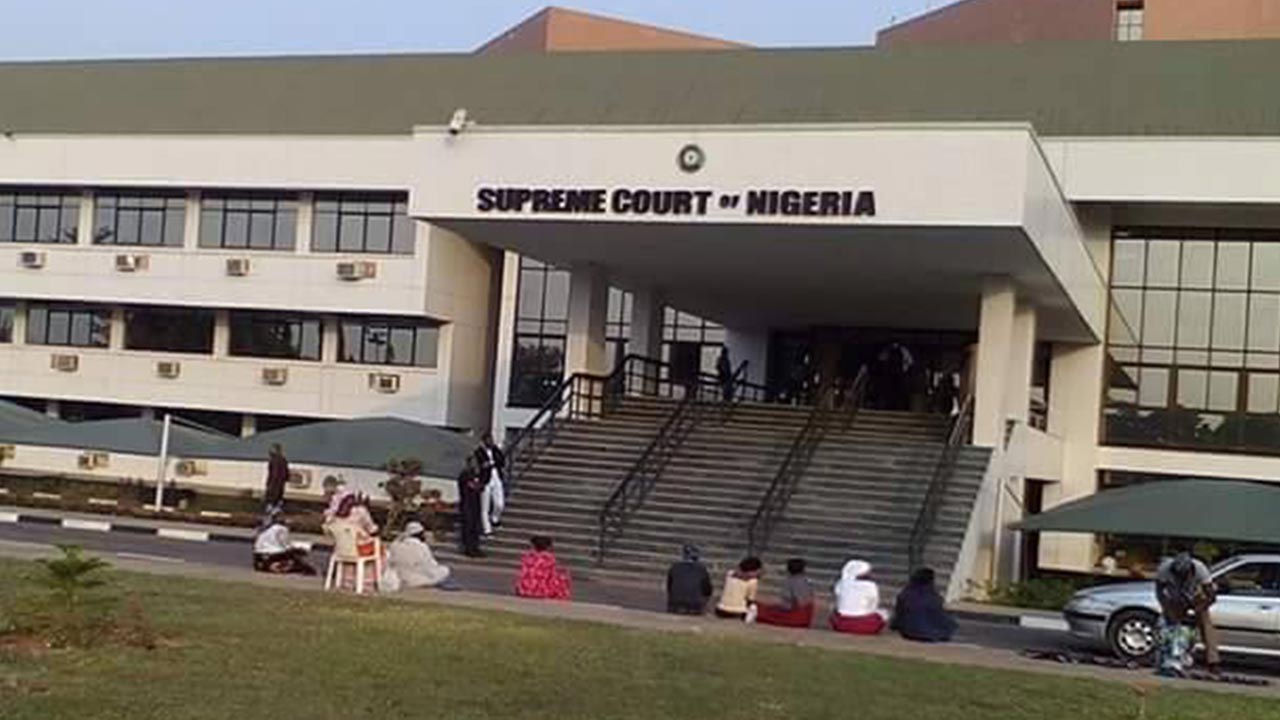Introduction
The Prerogative of Mercy is one of the most profound constitutional powers vested in the executive arm of government (the President or a State Governor). Recently, the exercise of this power by the President, His Excellency Bola Ahmed Tinubu, GCFR, generated intense public debate when a list of pardoned persons was initially published, attracting criticism over the perceived lack of transparency and fairness in its composition. The ensuing public outcry led to a further review of the initially approved list for consideration and the immediate relocation of the Secretariat of the Presidential Advisory Committee on Prerogative of Mercy from the Federal Ministry of Special Duties to the Federal Ministry of Justice, in furtherance of the President’s discretionary powers under section 175(1) and (2) of the Constitution of the Federal Republic of Nigeria, 1999 (As Altered) [1].
Despite the commendable initiative of the Federal Government, public debate continues to trail the removal of certain names from the revised list of pardoned persons particularly those removed on ground of their serious crimes such as kidnapping, drug-related offences, human trafficking, fraud, unlawful possession of firearms/arms dealing, etc. [2]. The central question is whether individuals excluded on such grounds are absolutely disentitled to pardon or whether they may challenge the executive decision to revoke or deny their inclusion in the pardon list.
Without delving further into the political controversy or debate, this article focuses on the nature, constitutional basis, and proper procedure for invoking the prerogative of mercy in Nigeria,while also assessing the limits of executive discretion and the mechanisms for accountability in its exercise.
What is Prerogative of Mercy?
According to the Black’s Law Dictionary, 10th Edition [3]; Prerogative of Mercy is defined as thediscretionary power of a supreme authority, such as a state governor, national president, or sovereign, to commute a death sentence, change the method of execution, or issue a pardon. It also means a compassionate treatment, as of criminal offenders or of those in distress; especially imprisonment, rather than death, imposed as punishment for capital offences [4].
In simple term, Prerogative of Mercy is the power of a Governor or the President to grant either conditional or total pardon to those who have been convicted of crimes whether they are still serving their punishments or they are ex-convicts. Once a person is granted total or unconditional pardon, such person’s criminal record is totally erased and the previous conviction cannot count against him anymore. On the other hand, where a person is granted conditional pardon, such a person must satisfy the conditions in order to have the crime totally erased so as to become free from the criminal record. However, the pardon granted must be clear as to whether it is a conditional or unconditional pardon. Where the word “pardon” alone is used without clear-cut as to being subjected to any condition, then it may be termed as total pardon [5].
In the case of Falae v. Obasanjo [6], the Court of Appeal held that a pardon cleared the person pardoned of both the crime and the infamy. Chief Olu Falae (the Petitioner) brought a petition against Chief Olusegun Obasanjo, then President-elect of Nigeria (the Respondent), on the ground that the Respondent was not eligible to contest the 1999 election having been convicted by a military tribunal, whereas, the Respondent had been pardoned by General Abdulsalami Abubakar before he contested the election. The Court of Appeal held in favour of the Respondent that by virtue of the pardon granted him by the then Head of State, he was eligible to contest the election. Per Musdapher, JCA (as he then was) said:
In my view, under the Nigerian law a “pardon” and “full pardon” have no distinction. A pardon is an act of grace by the appropriate authority which mitigates or obliterates the punishment the law demands for the offence and restores the rights and the privileges forfeited on account of the offence... The effect of a pardon is to make the offender, a new man (novus homo), to acquit him of all corporal penalties and forfeitures annexed to the offence pardoned.”[7]
Pardon and Amnesty
It is also important to know the difference between pardon stricto sensu and amnesty. This is due to the fact that one may be of the view that pardon and amnesty are one and the same. However, even though the phrase “prerogative of mercy” is considered to be the general term for either the discretionary power of the President or Governor to pardon, it is also the prerogatives of either the President or the Governor to grant amnesty which may be subsumed to mean pardon in another breath.
Imo Udofia in his article [8], unlike an ordinary pardon, amnesty is usually granted crimes against State sovereignty; that is, to political offences with respect to which forgiveness is deemed more expedient for the public welfare than prosecution and punishment. Amnesty is usually general, addressed to classes or even communities, also termed general pardon. Amnesty allows the government of a nation or State to “forget” criminal acts, usually before prosecution has occurred. Amnesty has traditionally been used as a political tool of compromise and reunion following a war. An act of amnesty is generally granted to a group of people who have committed crimes against the State, such as treason, rebellion, or desertion from the military. From the foregoing, it can be firmly established that an amnesty is a form or specie of pardon which is usually granted to a group or class of persons. See also Isibor v. The State [9].
Considering the above position, the article shall confine itself to the prerogative of mercy (pardon), its legal framework and application process in Nigeria.
What is the legal frame work and application process for prerogative of mercy in Nigeria?
Section 175 of the Constitution, whose provision is in tandem with the provision of Section 212 of the same Constitution, provides for Prerogative of Mercy and the establishment of the Committee on Prerogative of Mercy or the Attorney-General of the Federation or that of the State respectively [10]. The former provision deals with the President’s power while the latter provision deals with the Governor’s power. Either of them may exercise such power of Prerogative of Mercy, but same can only be properly made to the Committee on Prerogative of Mercy or the Attorney-General of the Federation or that of the State, and not to any court of competent jurisdiction in Nigeria nor the Court that convicted the person. This is the decision of the Supreme Court in the case of Okeke v. State [11]. However, the Court can still make recommendation for the power to be exercised as decided in Amanchukwu v. F.R.N. [12]
In the Amanchukwu’s case above, the sentence to life imprisonment was reduced to 15 years imprisonment on appeal when the convict had already served over 15 years. The Court of Appeal in that appeal recommended very strongly that the case be referred to the Attorney-General of the Federation who will bring it to the notice of the President of the Federal Republic of Nigeria for reprieve under the prerogative of mercy pursuant to Section 175 (1) of the Constitution. The Supreme Court was at home with the position of the Court of Appeal[12].
Therefore, section 175 (2) and 212(2) of the Constitution lend credence to the above that the President or Governor shall exercise that power after consultation with the Council of State. Though, no provision in the Constitution or any other relevant law stipulates that the President or Governor must be bound by the resolution or decision of the Council of State [13]. However, in exercising the above power, the President or Governor, after consultation with the Council of State or Advisory Council on Prerogative of Mercy of the State respectively, may:
1) grant the offender pardon;
2) grant the offender a respite. That is to cancel or postpone the punishment; or
3) commute the death sentence to life imprisonment or lesser punishment. [14]
To this end, it is to be noted that the power to exercise prerogative of mercy by the President or Governor of the state is purely discretionary and the President or Governor of a state, can only be advised not ordered nor compelled to exercise this quasi-judicial discretion.
Application for Prerogative of Mercy during the pendency of Appeal
The question herein is whether the President or the Governor can exercise the executive power of Prerogative of Mercy to a convict when his appeal is still pending?
Generally, prerogative of mercy as a legal concept cannot be set in motion unless there is a court sentence on a convicted person(s), which the pardon will then act as a panacea by mitigating or waiving the punishment. Where there is neither conviction nor sentence of court, the principle of prerogative of mercy cannot be invoked and whatsoever the President or the Governor of the state does before the conviction and sentence of the convict will not fall within the ambit of prerogative of mercy as rightly decided in the case of FRN v. Alkali & Anor. [15]
On the other hand, where the person(s) sentenced have exhausted his/their right of appeal or fail to use same, the only thing to do to twist the sentence of the court as pronounced is to make an application for prerogative of mercy [16]. It is worthy to note however that although the powers of the President and the Governor of the state under sections 175 and 212 of the Constitution inexercising their prerogative of mercy are enormous, such must be exercised judiciously and in accordance with the due process of the law. Therefore, where a convict decided to seek for prerogative of mercy, he must have initiated such without any pending appeal or until he has exhausted same appeal which was not swayed in his favour.
The Supreme Court in the case of Solola v. State [17] held that a person convicted of murder and sentenced to death by a High Court and whose appeal is dismissed by the Court of Appeal is deemed to have lodged a further appeal to the Supreme Court and until that appeal is finally determined, the Head of state or Governor of a state cannot, pursuant to sections 175 and 212 of the Constitution, as the case may be, exercise his power of prerogative of mercy in favour of that person. In the same vein, such person cannot be executed before his appeal is disposed of.
Again, in the case of Obidike v. State [18], the court, in deciding on the propriety of granting pardon to a convict of capital offence while appeal is pending, held that it is not proper that a convicted prisoner should be granted presidential pardon while his case is pending on appeal. Presidential pardon could come after appeal has been heard and determined; on the exercise of prerogative of mercy on a recommendation by the Attorney-General of the Federation. It sufficedto say that where the prerogative of mercy is exercised while the convict’s case is pending at whatsoever stage, such mercy cannot hold water as it may be challenged [19].
Length of Time in Correctional Centre before Application for Prerogative of Mercy can be made in Capital Sentence
In the recent presidential pardon exercise, public outcry followed the inclusion (and later exclusion) of persons convicted of serious economic and violent crimes. This stirred debate about whether mercy is being used as a tool of compassion or as a political instrument. One may then asked that how many years a convict sentenced to death must have spent before applying for prerogative of mercy on his behalf or so that his sentence be commuted to life imprisonment?
Looking at the legal discuss so far, exercising prerogative of mercy does not have a time bound as same may even be recommended by the Court that sentenced a convict and pursue immediately by his legal representative [20]. However, each case depends on its peculiarity or circumstance attached to it, as each case is decided on its own merit.
On the other hand, where a convict has spent a longer year in the correctional centre and justify to be remorseful enough for such consideration, no law prevent the board from making the recommendation once aware of same, except as the President or Governor may determine, based on their discretionary power. Note, however, that the Nigerian Correctional Service Act [21], is also apposite, envisaging a minimum of 10 years on capital sentence cases. It provides that where an inmate sentenced to death has exhausted all legal procedures for appeal and a period of 10 years has elapsed without the execution of the sentence, the Chief Judge may revert the death sentence to life imprisonment.
The author is not unaware of the argument that the provision of the Nigerian Correctional Service Act runs foul to the constitutional provision relating to the power of the President or the Governor on prerogative of mercy which can be exercised at any time without waiting for any year to count. In his humble submission to the contrary, the provision is not inconsistent with the constitutional power of the President or the Governor as it only strengthen the fairness of tempering justice with mercy within a reasonable time without waiting for too long a year.
The then Attorney-General of the Federation also relied on the provision of the Nigerian Correctional Services Act when he stated in one of the press release that the Nigerian Government may commute death sentence to life imprisonment for some inmates [22]. This is a commendable approach as the inmate does not need to wait for several years with all hope lost that that is the end of the road as usually played out, except there is an appeal pending on his behalf giving him hope.
More recently, the current Attorney-General of the Federation, Prince Lateef Fagbemi SAN, also emphasized that it is important to note that the last stage of the exercise, after approval by the Council of State, is the issuance of the instrument for the implementation of the decision concerning each beneficiary. This stage affords an opportunity for a final look at the list for remedial purposes, if any, before the instrument is forwarded to the Controller-General of Corrections for necessary action [23].
Therefore, the author recommends the following:
1) Where the inmate appeals his sentence and has exhausted all appeal windows, he may be recommended for the prerogative of mercy.
2) Where the inmate did not appeal his sentence and (or) no any prerogative of mercy ever sought for over a period of 10 years while his execution is still pending, he may be recommended for prerogative of mercy or the Chief Judge of that state may suo motu commute his death sentence to life imprisonment.
3) Where the appeal is already pending at the Court of Appeal or the Supreme Court, an application may be made to the Presiding Justice or Chief Justice of Nigeria at the Court of Appeal or Supreme Court as the case may be for the accelerated hearing of the appeal. On this, the Court may assign a shorter date for the expeditious hearing of the appeal which may either be in his favour or otherwise. Where the latter is the case, then he may now approach the board for the prerogative of mercy.
Upon this backdrop, whether the sentence of an inmate is severe or otherwise, the inmate has every right and opportunity to enjoy prerogative of mercy which may be made immediately the convict is sentenced, or upon recommendation by the Court, or the board, or any other body who may do same on his behalf provided it is brought to the attention of the President or the Governor.
Conclusion
It is important to know that where appeal on a criminal sentence is pending, an application or recommendation for prerogative of mercy may not be made during that period albeit the years the appeal may be taken to be heard, otherwise, it may not be treated by the board or even where treated, the President or Governor may not grant same and the Prosecution or Respondent may challenge the authority.
However, where the convict or his representative for the prerogative of mercy are more inclined to that approach than the appeal already pending at the Court of Appeal or the Supreme Court, the best option is to follow the third recommendation above.
In synopsis, even though the issue of prerogative of mercy is recognized constitutionally and under our law, same may be considered and granted to a convict, though, it is still subject to the discretion of the President or the Governor. However, their powers, just like the court of law, must be exercised judiciously and in good faith. This was aptly captured by Mr. President, when he directed the Attorney-General of the Federation to issue appropriate Guidelines for the Exercise of the Power of Prerogative of Mercy, which includes compulsory consultation with relevant prosecuting agencies thus:
“This will ensure that only persons who fully meet the stipulated legal and procedural requirements will henceforth benefit from the issuance of instruments of release.” [24]
Also, such executive power cannot be invoked where there is a pending appeal in the case of the convict as the law considers that justice in a case is not only to a Defendant, Appellant or a convict alone, but to the State and even the victim as held in the locus classicus case of Josiah v. State [25].
As a take home, the author concluded with the case of Ezenwafor v. Commissioner of Police[26], where my Noble Lord, Per Omoleye J.C.A, at Page 40, Paragraph A-C held thus:
“The phrase “in the interest of justice” is not a magic wand that can be hinged upon by any single party. It is not a shield for or tool to be wielded by anyone party. Indeed, all parties in an action are entitled to that: “interest of justice”. It must be applied and made available to all and sundry in accordance to applicable laws in a matter.”
References
1) Press Release made by Bayo Onanuga, Special Adviser to the President (Information & Strategy) on 29 October 2025, available on Presidential Villa State House’s Website-https://statehouse.gov.ng/president-tinubu-signs-instrument-of-clemency-and-pardons-moves-secretariat-of-prerogative-of-mercy-committee-to-justice-ministry/ last visited, 06 November 2025.
2) Ibid.
3) Garner B. A, Black’s Law Dictionary, Tenth Edition at page 1373.
4) The Prerogative of Mercy under the Nigerian Criminal Justice System and the Quasi-Judicial Power of the Executive by Kereseakara Usendu, Esq. https://legalresearchersnigeria.wordpress.com/2016/08/13/the-prerogative-of-mercy-under-the-nigerian-criminal-justice-system-and-the-quasi-judicial-power-of-the-executive-by-kereseakara-usendu-esq/amp/ last visited, 06 November 2025.
5) Falae v. Obasanjo (1999) 4 NWLR (Pt. 599) 476 at 501, Paras. C-E. See also The Instrument of Presidential Prerogative of Mercy (Grant of Pardon), 2025.
6) Ibid.
7) Ibid at Page 495, Paras. D-E.
8) The Abuse of Presidential Power of Pardon and the Need for Restraint; published by Beijing Law Review, Vol. 9 No. 2, 2018; accessed viahttps://www.scirp.org/journal/paperinformation.aspx?paperid=84163 on 20 February 2023.
9) (2002) 4 NWLR (Pt. 758) 741
10) See sections 175(2), (3) and 212(2) of the Constitution.
11) (2003) 15 NWLR (Pt. 842) 25 at Page 105-106, Paras. H-A.
12) (2007) 6 NWLR (Pt. 1029) 1
13) (2009) 8 NWLR (Pt. 1144) 475 at 489, Paras. D-G.
14) Supra (n. 4)
15) Section 175(2) and 212(2) of the Constitution.
16) (2018) LPELR-45237(CA), Pp 47 – 58 Paras B – F.
17) Supra (n. 8).
18) (2005) 11 NWLR (Part 937) 460 at 488-489, Paras. H-B
19) (2001) 17 NWLR (743) 601
20) FRN v. Achida & Anor (2018) LPELR-46065(CA)
21) Supra (n. 12)
22) Section 12 (2) (c) and (4) of the Nigerian Correctional Service Act, 2019
23) https://punchng.com/inmates-on-death-row-may-get-life-malami/ revisited 06 November 2025.
24) https://businesspost.ng/general/presidential-prerogative-of-mercy-exercise-at-review-stage-fagbemi/ visited on 06 November 2025.
25) Supra (n. 1)
26) (1985) 1 NWLR (Part 1) 125 at 141 Paras, G-H.
27) (2009) LPELR-CA/A/34C/08





